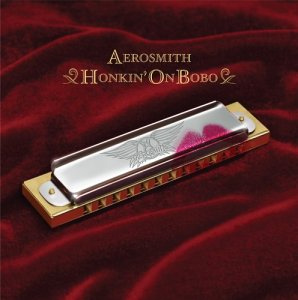
Honkin' on Bobo is the fourteenth studio album by American rock band Aerosmith, released on March 30, 2004, by Columbia Records. The album includes 11 covers of blues and blues rock songs from the 1950s and 1960s, with one new song, "The Grind". The album pays tribute to Aerosmith's earliest influences and showcases a rawer sound when compared to their more recent commercial efforts. Honkin' on Bobo was produced by Jack Douglas, who was Aerosmith's producer on a vast majority of their 1970s output.

In Our Gun is the third studio album by English rock band Gomez, released on 18 March 2002 by Hut Records.
Laika were an English band formed in 1993 and helmed by Margaret Fiedler and Guy Fixsen. Their lineup also included John Frenett (bass), Lou Ciccotelli (drums), Louise Elliot, and Rob Ellis (drums). Laika were founded following Fiedler and Frenett's departure from the band Moonshake; Laika's other members had previously worked with different artists on the roster of Moonshake's label Too Pure. Laika's experimental style blended diverse genres, including electronica, krautrock, dub, hip hop, and jazz. They released their debut album Silver Apples of the Moon in 1994, and followed with 1997's Sounds of the Satellites, both to critical praise. Laika released two subsequent albums, 2000's Good Looking Blues and 2003's Wherever I Am I Am What Is Missing, after which they entered an indefinite hiatus. As of July 2022, the band's website is inactive with the domain for sale.

The Beta Band is the debut studio album of the Beta Band, released in June 1999 by Regal Records. The album followed the critically acclaimed compilation of their first three EPs titled The Three E.P.'s (1998). With high anticipation for The Beta Band, the band originally planned to record the album in four separate continents, but financial constraints slimmed the recording locations down; however, the album was still recorded in a variety of locations. The band approached creating the songs in a variety of ways, sometimes forming songs from single melodies, sometimes bringing together other strands of music, among other forms.
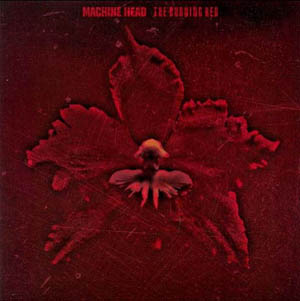
The Burning Red is the third studio album by American heavy metal band Machine Head. It is the band's second best selling album in the US, selling as many copies in three years as their debut album, Burn My Eyes, sold in almost eight years (1994–2002). The album has sold over 134,000 copies in the US and it was certified silver in 2011 by the BPI for sales of 60,000 in the UK. The Burning Red was Machine Head's first album with guitarist Ahrue Luster, as well as their first venture into nu metal.
Margaret Fiedler McGinnis is a London-based American vocalist, multi-instrumentalist and noted guitarist. She is best known as a founding member of UK indie groups Moonshake and Laika and as live guitarist with PJ Harvey and Wire.
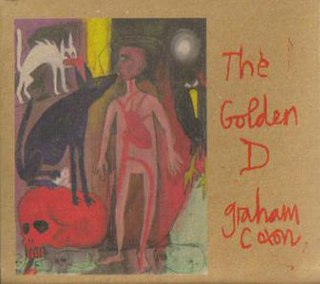
The Golden D is the second solo album by Blur guitarist Graham Coxon, released in 2000. This outing saw him come back with some heavier, even lower-fi guitars and vocals. With only one track reminiscent of The Sky Is Too High, "Keep Hope Alive," the album was a departure from both Blur and his previous work. The album features two covers, "Fame and Fortune" and "That's When I Reach for My Revolver", both from early eighties post punk band Mission of Burma. All other tracks were written by Coxon, who recorded all instruments, produced and mixed the album as well. The title of the album is a tongue in cheek reference to his favourite guitar chord, possibly at the time or a constant preference.

The Hot Rock is the fourth studio album by the American rock band Sleater-Kinney, released on February 23, 1999, by Kill Rock Stars. It was produced by Roger Moutenot and recorded at the Avast! recording studio in Seattle, Washington in July 1998. The Hot Rock marks a considerable change in the band's sound, veering into a more relaxed and gloomy direction than the raucous punk rock style of its predecessors. The lyrical themes of the album explore issues of failed relationships and personal uncertainty.

Bob Dylan is an American singer-songwriter. Generally regarded as one of the greatest songwriters ever, Dylan has been a major figure in popular culture over his 60 year career. Much of his most celebrated work dates from the 1960s, when songs such as "Blowin' in the Wind" (1963) and "The Times They Are a-Changin'" (1964) became anthems for the civil rights and antiwar movements. His lyrics during this period incorporated political, social, philosophical, and literary influences, defying pop music conventions and appealing to the burgeoning counterculture.

Bottle of Humans is the debut solo studio album by American hip hop artist Sole. It was released on Anticon in 2000. It peaked at number 14 on CMJ's Top 25 Hip-Hop chart.
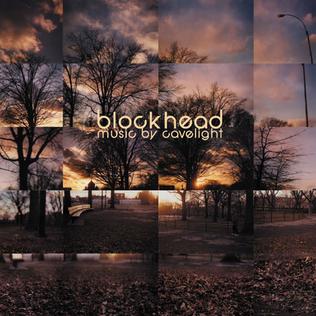
Music by Cavelight is the first solo studio album by American hip hop producer Blockhead. It was released on Ninja Tune on March 23, 2004. It peaked at number 43 on the UK Independent Albums Chart. It received generally favorable reviews from critics.

F-Punk is the eighth studio album by Mick Jones' post-Clash band Big Audio Dynamite, released in 1995. It was the first album to be released under the name of Big Audio Dynamite since 1989's Megatop Phoenix. The title is a pun on the funk group P-Funk, and is supposed to imply "Fuck punk." The album cover lettering takes influence from London Calling, one of Mick Jones' albums with The Clash, which in turn was a copy of Elvis Presley's debut album.

Quique is the debut album by British music group Seefeel. It was released through Too Pure in October 1993. A predominantly instrumental record which utilises elements of both rock and electronic music, it blends styles including techno, dream pop, ambient, and dub. Guitarist Mark Clifford worked continually on tracks while other members either completed them or provided component ideas.

Starters Alternators is an album by Dutch post-punk band The Ex. It is the band's 10th studio album and was produced by Steve Albini for a 1998 CD released jointly by Touch and Go Records and the band’s own label, Ex Records.

Your Majesty is the second studio album by American rock band the Anniversary. It was released on January 22, 2002, through Vagrant Records. Following the release of their debut studio album, Designing a Nervous Breakdown in early 2000, the band started writing new material by that August. They later recorded the album in June 2001 at Sonora Recorders in Los Feliz, California, with producer Rob Schnapf.
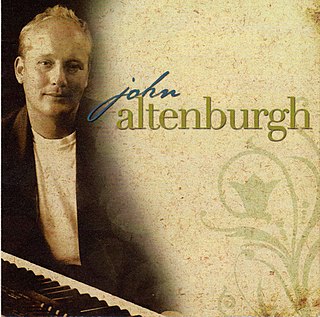
John Altenburgh is an American jazz and blues pianist, composer, arranger and producer who has made his home in Mosinee, Wisconsin. Altenburgh studied music at the University of Wisconsin–Oshkosh. He is the founder of Altenburgh Records distributed by The Orchard a division of Sony Entertainment and has recorded numerous albums as a solo artist and with his blues group, Johnny & The MoTones.
Appliance were a British experimental post-rock three piece band, who released four albums between 1999 and 2003 on Mute Records.

Somewhere Else is the third studio album by American musician Lydia Loveless. It was released on February 18, 2014, by Bloodshot Records.

Come On In is a remix album by Delta blues guitarist R. L. Burnside, released by the label Fat Possum in 1998. Largely produced by Tom Rothrock, the album was a departure for Burnside in that it fuses his blues guitar work with dance and electronic music, incorporating sampling and looping techniques. Burnside was originally skeptical of the idea, but enjoyed the finished product. Although the album's fusion of styles was deemed unusual by critics, it received acclaim from music journalists and showed respectable sales, becoming the best-selling album distributed by Epitaph Records in early 1999. The album's sound was explored by Burnside in his later works.
The Amazing Colossal Band is an album by the Finnish surf rock band Laika & the Cosmonauts, released in 1995. It was one of many instrumental rock albums released in 1995, part of a mid-1990s trend that encompassed lounge, surf, and space rock styles.















